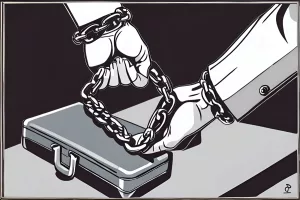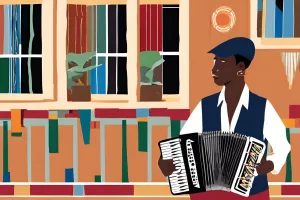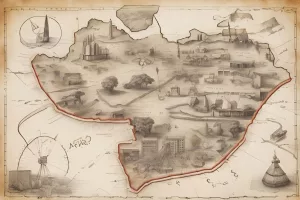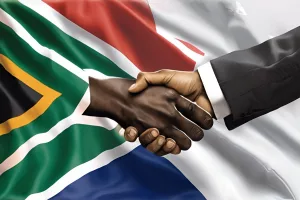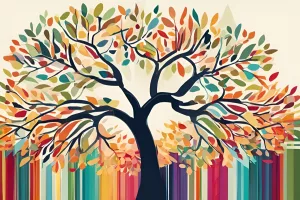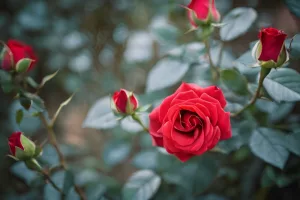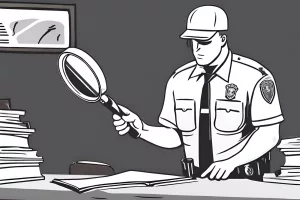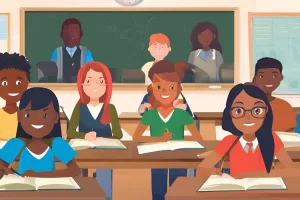‘The Heart of Cape Town’ is a documentary premiering at We Are Africa that tells the story of Laston Sachikonye, a wire artist, and his partnership with Uthando South Africa to create unique wire hearts that spread love and warmth across South Africa. The documentary features South Africans moved by these wire hearts and serves as a testament to the strength of creativity, generosity, and the indomitable human spirit in South Africa. The premiere is expected to draw a large audience of international attendees and is a reflection of the beautiful and robust heart of South Africa.
The trial of Nafiz Modack and his alleged involvement in the attempted assassination of William Booth has brought the complex and unpredictable nature of South Africa’s criminal underworld to light. The trial has revealed a world of risky investments, illicit transactions, and coercion. Essential witness Mr C recounted a distressing narrative of menace, manipulation, and blackmail, revealing the sinister shadows of the South African underworld. Despite threats to harm his family, Mr C remained steadfast in his complaint, demonstrating that the intricate nexus of crime and retribution holds no straightforward solutions.
Amazon has made an exciting move into South Africa with the launch of its online platform, amazon.co.za. The platform offers a wide range of products and promises free nextday delivery on orders over R500. To enhance the customer experience, Amazon has partnered with local courier companies and a South African nonprofit organization, goGOGOgo, to provide realtime updates on orders, easy returns, and handmade gift bags. Amazon’s venture into South Africa offers a ripe opportunity for ecommerce companies, and it affords local sellers, brand proprietors, and entrepreneurs the chance to expand their business with Amazon.
Devan Cox, a young and fit South African constable, has captured the nation’s imagination with his viral postworkout selfie in his police uniform, which has landed him in hot water with his superiors. Despite the disciplinary action, Cox has remained committed to his role as a lifesaving officer rather than a model. He has become an internet sensation and an overnight star, but his story also highlights the struggle between personal identity and professional obligations in today’s social mediasaturated era.
World Accordion Day is celebrated annually on May 6th around the world, highlighting the importance of the accordion as a musical instrument. In South Africa, the event showcases the accordion’s historical significance and contemporary relevance, with renowned artists performing at various venues. The accordion’s versatility and adaptability transcends cultural boundaries and has an enduring influence on South African music, as celebrated during the event’s diverse performances.
South Africa’s economic transformation plan focuses on inclusive growth and infrastructure development to address income disparity, empower marginalized communities, stimulate industrialization, and promote economic diversification. The government is also combating corruption, embracing technological advancements, and solidifying relationships with other African nations and emerging economies. At a recent Black Business Council Awards and Dinner, the Minister in the Presidency and President Cyril Ramaphosa outlined the country’s vision for the future, emphasizing the importance of inclusive growth, infrastructure development, digitalization, and partnerships with other nations. This occasion symbolized South Africa’s commitment to economic empowerment and transformation.
Workers’ Day in South Africa is a day of celebration for the contributions and achievements of workers across the nation. It represents three decades of democratic governance and the tireless resilience of workers and trade unions who have played an integral part in the journey towards justice and equality. Progressive legislations have transformed labor rights and workplace conditions, leading to a more equitable and just labor market. However, ongoing efforts are needed to address gender disparities and high levels of youth unemployment. Parliament remains committed to enhancing the lives and working conditions of South African workers.
In Pretoria Central, the Gauteng police quickly captured a suspect in the homicide of a Meter Taxi Association chair. The suspect allegedly began shooting at the police before being arrested for murder and possession of an unlicensed firearm. The event sheds light on the persistent issue of violence in the South African taxi industry and the effectiveness of the Rapid Rail Police Unit’s speedy response. The police are investigating potential connections to other crimes related to taxi violence.
In his keynote speech at the 2024 Black Business Council Gala Dinner, South African President Cyril Ramaphosa shares an insightful and enthralling account of the country’s economic transformation. He highlights the expansion of blackowned businesses since his administration took power in 2019 and pays tribute to the late Dr. Sam Motsuenyane’s significant contribution to economic transformation. Ramaphosa acknowledges the challenges that remain, including high unemployment, energy issues, and poverty, but celebrates the success of black businesses and the government’s commitment to economic progress.
South African Ministers Aaron Motsoaledi and Naledi Pandor have reported receiving death threats, with Motsoaledi receiving six to eight threatening calls per day from an unknown individual. The reasons behind the threats remain unclear, but they come in the wake of South Africa’s legal proceedings against Israel at the International Court of Justice. The incidents highlight the potential risks faced by public servants involved in international affairs of significant consequence.
Percy Montgomery is a rugby legend known for his tactical brilliance, remarkable career statistics, and impact on South Africa’s rugby heritage. With 102 caps and 893 points for the Springboks, he is one of the nation’s most celebrated players. Montgomery’s postplaying career ventures include coaching and stepping into the tequila business, making him a potent symbol of South Africa’s rich rugby heritage. His continued journey remains exciting and full of adventure, a true maverick on and off the field.
South Africa’s journey towards development is intertwined with democracy, as evidenced by foundational documents like the Freedom Charter, Reconstruction and Development Programme, and the Constitution. The National Development Plan empowers South Africans with a vision of a more inclusive economy, a stronger state, and a society underpinned by leadership and partnerships. While there has been progress over the last three decades, major challenges remain, particularly in youth unemployment. Engaging with the youth and creating a supportive environment that empowers and uplifts them is critical for the country’s future.
South African boxing legend Dingaan Thobela, also known as the “Rose of Soweto,” passed away at the age of 57. Thobela was a twotime world champion in two weight categories and represented unity and national pride for his country. Although his life outside the ring was not without controversy, his resilience and perseverance continue to inspire future generations, and his legacy goes beyond his sporting triumphs, reflecting his unyielding spirit and love for his country. His passing was a great loss for the boxing community, which had recently lost another former champion.
Allegations of signature forgery have rocked South Africa’s Umkhonto weSizwe (MK) Party, initiated by former President Jacob Zuma, causing uncertainty over its leadership and impact on upcoming elections. The forgery operation allegedly involved illegally obtaining personal information from the Cape Metro Council’s database and using it to fabricate signatures. The revelations coincide with Zuma’s decision to oust highranking party members, adding fuel to the fire of discord within the party.
“Operation Shanela” is a law enforcement mission in the North West province of South Africa that aims to keep the public safe. In one week, the operation resulted in the arrest of 904 suspects for various crimes, including homicide, drug trafficking, and breakins. The mission also involves community participation to create a sense of shared responsibility and trust. This operation is a beacon of hope for a safer province and a model for other regions dealing with similar challenges.
South Africa’s upcoming elections offer the promise of strengthening democratic principles and paving the way for a fairer basic education system. The country has made significant progress in achieving nearuniversal access to education for 7 to 15yearolds, and initiatives like the National Student Financial Aid Scheme and a focus on entrepreneurial skills further support education beyond the confines of schools. The North West Basic Education Lekgotla exemplifies the transformative power of unity and teamwork in enhancing the quality of basic education across the province, with a focus on infrastructure development and promoting STEM education.


